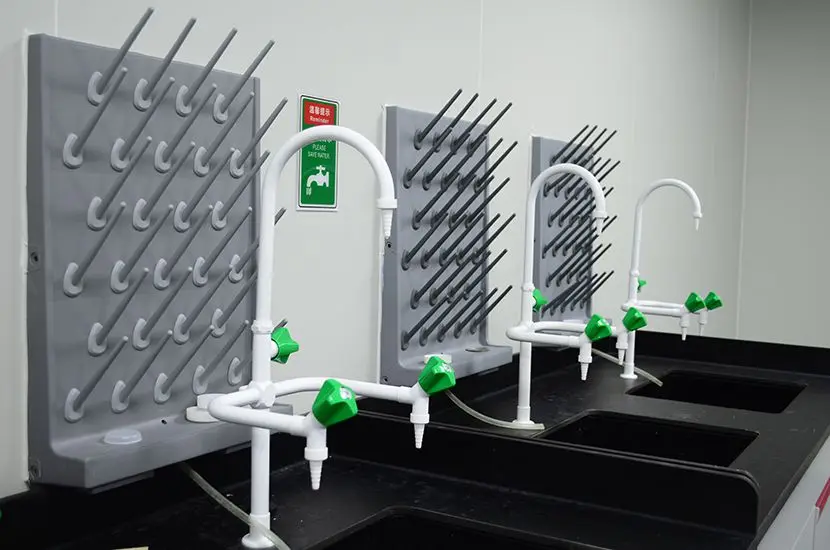
CPSC Approved Laboratory
CPSC stands for the U.S. Consumer Product Safety Commission. In order for children's products to be sold on Amazon in the U.S., a CPC certificate issued by a CPSC-approved laboratory is requiRED, which is commonly referred to as "CPSC Certification," even though there is no such thing as "CPSC certification" in technical terms. The JJR Lab in China has nearly 25 years of experience in testing and certification. As a CPSC-authorized laboratory with CNAS/CMA accreditation, it can conduct tests and issue CPC certificates for children's products, which are also recognized by the Amazon platform in the U.S.
Introduction to the U.S. CPSC
CPSC stands for the U.S. Consumer Product Safety Commission, a federal agency of the U.S. government. Its primary responsibility is to develop and enforce safety standards and regULations for consumer products. CPSC oversees approximately 15,000 different products and gathers safety data, notifies consumers of product hazards, and promotes ways to reduce risk. The CPSC's regulations apply to safety concerns related to electronic oscillations, fire hazards, and other safety issues. They also cover products involved in lawsuits where failure to comply with safety standards led to injury or death. Manufacturers, importers, distributors, and retailers are required to report unsafe products in writing. Only products with a safety mark are allowed to enter the market.
Amazon CPC certificate Requirements:
1. Children’s products must comply with relevant safety regulations and undergo mandatory third-party testing.
2. Testing must be conducted at a CPSC-approved laboratory.
3. Based on third-party test results, the laboratory issues the CPC certificate.
4. Children’s products must comply with all applicable rules and regulations.
CPC Certification Testing Standards:
The CPSC has published 38 standards, which mainly include tests for:
1. cpsia total lead and phthalates content.
2. U.S. Toy Safety Standard (ASTM F963).
3. Electric Toy Safety Standard (16 CFR Part 1505).
4. Rattle Toy Requirements (16 CFR Part 1510).
5. Nipple Safety Standards (16 CFR Part 1511).
6. Children’s Apparel and Carpet Flammability (16 CFR Part 1610).
7. Standards for infant products such as strollers, cribs, playpens, carriers, car seats, and bicycle helmets.
CPC Certification Process by Third-Party Agencies:
1. Sign a contract.
2. Ship product samples.
3. Laboratory testing of samples.
4. Report preparation (confirm report information).
5. Issue certificate and report.
Certification Period: 5-7 business days (Expedited service available).
CPSC-approved third-party laboratories in the U.S. can assist in obtaining CPC certificates. The CPC certificate essentially indicates product compliance. As long as the product meets CPSC's required standards, the CPC certificate issued by a third-party lab is recognized by the CPSC.
1. Product Range:
- Bunk beds, bicycles, lighters, mattresses, bicycle helmets, pool ladders, infant and children’s products, etc.
2. Testing Items:
- Small parts, heavy metal migration: Testing for heavy metal migration, material flammability, and physical performance.
- CPSIA lead content, CPSIA phthalates: Testing for harmful substance levels in the product.
3. Testing Qualifications:
- CNAS, CPSC accredited.
5. Testing Standards:
- Includes 16 CFR 1501, Physical Performance regulations for Children’s Products, CPSIA, etc.
6. Export Testing Services:
- Plush Toys: Must comply with ASTM F963, CPSIA, CPSC Standards, etc.
- Slime (fake water) toys: Testing items include CPSIA lead content, ASTM F963, etc.
- Plastic Toys: Testing for CPSIA phthalates content (optional), CPSIA tracking labels (CPSIA Tracking Label Review), etc.
Email:hello@jjrlab.com
Write your message here and send it to us
 Cost of U.S. FDA CFR 21 177.2600 Test Report
Cost of U.S. FDA CFR 21 177.2600 Test Report
 How much does the IP44 Compliance Test cost
How much does the IP44 Compliance Test cost
 What is LFGB Test
What is LFGB Test
 What does LFGB certified mean?
What does LFGB certified mean?
 Weee authorised representative germany
Weee authorised representative germany
 Where to Apply for 2026 Air & Sea Transport Ce
Where to Apply for 2026 Air & Sea Transport Ce
 Guide to IEC Test Reports for Lighting Exports
Guide to IEC Test Reports for Lighting Exports
 IEC/EN 62471 and IEC/EN 62778 (Photobiological Saf
IEC/EN 62471 and IEC/EN 62778 (Photobiological Saf
Leave us a message
24-hour online customer service at any time to respond, so that you worry!




